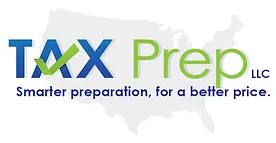INTRODUCTION
As a freelancer in Washington, DC, the freedom of self-employment comes with significant tax responsibilities. Managing taxes effectively requires understanding local and federal obligations, maximizing deductions, and avoiding costly errors. This summary provides practical tax strategies tailored for DC freelancers, emphasizing compliance, savings, and proactive planning to ensure financial success in 2025. By leveraging deductions, maintaining accurate records, and staying ahead of deadlines, freelancers can transform tax season from a burden into an opportunity for savings.
Navigating DC’s Tax Landscape
Freelancers in Washington, DC, operate in a unique tax environment shaped by federal and local regulations. Unlike traditional employees, freelancers are considered both employer and employee, making them responsible for self-employment tax, quarterly estimated payments, and local business licensing. These obligations, while complex, offer opportunities for significant tax savings through strategic planning.
The self-employment tax, covering Social Security and Medicare, is 15.3% of net earnings (12.4% for Social Security up to $168,600 in 2025, plus 2.9% for Medicare, with an additional 0.9% for high earners). Freelancers must budget for this tax throughout the year, as no employer withholds it. Additionally, quarterly estimated taxes are required to cover federal income and self-employment taxes, with deadlines on April 15, June 15, September 15, and January 15 of the following year. Missing these can trigger penalties, making calendar reminders and monthly budgeting essential.
Washington, DC, mandates a Basic Business License (BBL) for all freelancers, costing a nominal fee but requiring zoning verification and tax registration. This legal requirement ensures compliance and should be factored into annual planning. DC’s lack of a state income tax for freelancers (unlike states like California) simplifies some aspects, but the city’s 8.5% sales tax applies to certain services, such as photography or event planning, requiring freelancers to register, if applicable.
Effective Tax Strategies
To thrive financially, DC freelancers should adopt these key strategies:
- Maintain Accurate Records: Robust record-keeping is critical for tax compliance and identifying deductions. Use tools like QuickBooks, Wave, or FreshBooks to track income, expenses, receipts, invoices, and mileage logs. Regular updates provide a clear view of financial health and simplify tax filing. For example, tracking client payments and software subscriptions ensures no deductible expense is missed.
2. Maximize Deductions: Freelancers can reduce taxable income by claiming a range of deductions:
- Home Office Deduction: Deduct a portion of rent, utilities, and internet for a dedicated workspace, up to $1,500 for 300 square feet using the simplified method. This is ideal for DC’s high-rent market.
- Business Vehicle Use: Deduct mileage at 70 cents per mile in 2025 or actual expenses (e.g., gas, repairs) for business-related travel, such as client meetings. Accurate logs are essential.
- Health Insurance Premiums: Deduct 100% of premiums for self, spouse, and dependents, a significant benefit for self-employed individuals.
- Other deductions include marketing costs, professional subscriptions, and education expenses related to your trade.
3. Leverage the QBI Deduction: The Qualified Business Income deduction allows freelancers to deduct up to 20% of net business income, subject to income thresholds (phased out above $191,950 for single filers in 2025). This underutilized deduction can significantly lower taxable income but may expire post-2025, necessitating proactive planning.
4. Consult a Tax Professional: A DC-based tax advisor can identify local incentives, ensure BBL compliance, and optimize federal deductions. They can also navigate potential 2025 tax changes, such as TCJA provisions expiring, which could impact QBI or other benefits.
Common Mistakes to Avoid
Freelancers often face pitfalls that can lead to financial strain:
- Not Saving for Taxes: Without employer withholding, freelancers must set aside 25–30% of income for taxes. A separate savings account prevents cash flow issues during tax season.
- Missing Quarterly Payments: Late estimated tax payments incur penalties and interest. Automate reminders and budget monthly to stay compliant.
- Overlooking Deductions: Failing to track expenses like internet costs or professional memberships can cost thousands in missed savings. Regular expense reviews and professional guidance help capture all deductions.
- Ignoring BBL Requirements: Operating without a Basic Business License can result in fines, disrupting operations. Ensure timely registration and renewal.
Case Study: Mark’s Success Story
Mark, a freelance graphic designer in Dupont Circle, initially filed taxes independently, missing deductions for his home office and internet usage. After an audit scare, he hired a DC tax professional who identified $2,500 in home office deductions, $1,800 in vehicle expenses (3,000 business miles), and $3,000 in health insurance premiums. By claiming the QBI deduction, Mark reduced his taxable income by 20%, saving $4,200 in 2024. These savings allowed him to upgrade his equipment, boosting his business’s competitiveness.
Conclusion
Tax planning for freelancers in Washington, DC, is both a challenge and an opportunity. By mastering self-employment tax, staying ahead of quarterly deadlines, claiming deductions like home office and QBI, and fulfilling local BBL requirements, freelancers can minimize their tax burden and enhance financial stability. Accurate record-keeping and professional guidance are critical to navigating DC’s tax landscape and avoiding pitfalls like missed deductions or penalties. With 2025 potentially bringing federal tax changes, proactive planning is essential to ensure a smooth, savings-filled tax season.
Call to Action
Are you a DC freelancer ready to optimize your taxes? Contact our expert team at DC Tax Prep today for a personalized consultation to maximize your deductions and ensure compliance. Let’s make your 2025 tax season stress-free and profitable!

